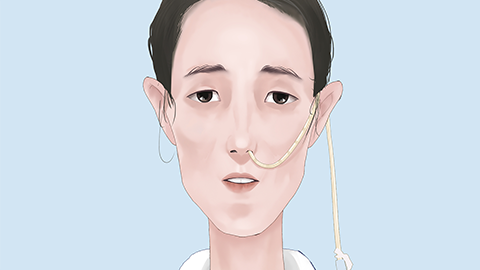Which medications can alleviate anorexia after cerebral infarction?
Generally, post-stroke anorexia can be relieved under medical guidance with medications such as Domperidone Tablets, Mosapride Tablets, Lactozyme Tablets, Compound Digestive Enzyme Capsules, and Megestrol Acetate Dispersible Tablets. If discomfort occurs, timely medical consultation is recommended. Detailed explanations are as follows:

1. Domperidone Tablets
As a gastrointestinal prokinetic agent, it promotes gastric emptying and improves stomach distension and early satiety caused by slowed gastrointestinal motility after stroke, thereby alleviating anorexia. It is suitable for patients with significant postprandial fullness. Note: use cautiously in patients with severe hepatic or renal insufficiency, and avoid combination with ketoconazole.
2. Mosapride Tablets
It enhances gastrointestinal smooth muscle contraction and improves motility throughout the digestive tract. It is especially suitable for patients with gastroesophageal reflux or weakened intestinal motility after stroke, helping to relieve symptoms such as abdominal distension and belching, and indirectly improving appetite. Generally taken 15-30 minutes before meals, with relatively few adverse effects.
3. Lactozyme Tablets
Belonging to probiotic preparations, these tablets contain live Enterococcus faecalis, which helps regulate intestinal flora balance, promote digestion and absorption of food, and relieve anorexia, diarrhea, or constipation caused by intestinal dysbacteriosis. They are particularly effective for intestinal dysfunction caused by prolonged bed rest after stroke. Storage requires protection from light and refrigeration.
4. Compound Digestive Enzyme Capsules
Containing various digestive enzymes such as pepsin and pancreatic enzymes, these capsules can compensate for possible enzyme deficiencies caused by reduced secretion from digestive glands after stroke, aiding in the breakdown of proteins, fats, and carbohydrates, and improving digestion and absorption issues. Suitable for patients experiencing abdominal distension and poor appetite after meals.
5. Megestrol Acetate Dispersible Tablets
As a progestogen, it can stimulate the hypothalamic feeding center to improve appetite. It is suitable for patients with severe anorexia and significant weight loss following a stroke. However, note that long-term use may increase the risk of thrombosis. Contraindicated in patients with a history of thrombosis. Short-term use under a physician's guidance is required.
Post-stroke anorexia is often associated with gastrointestinal motility disorders, impaired digestion, or central regulatory dysfunction. Drug treatment should be selected according to underlying causes, combined with dietary adjustments and rehabilitation training. Prior to medication, the patient's liver and kidney function and potential drug interactions should be evaluated to avoid indiscriminate use.








